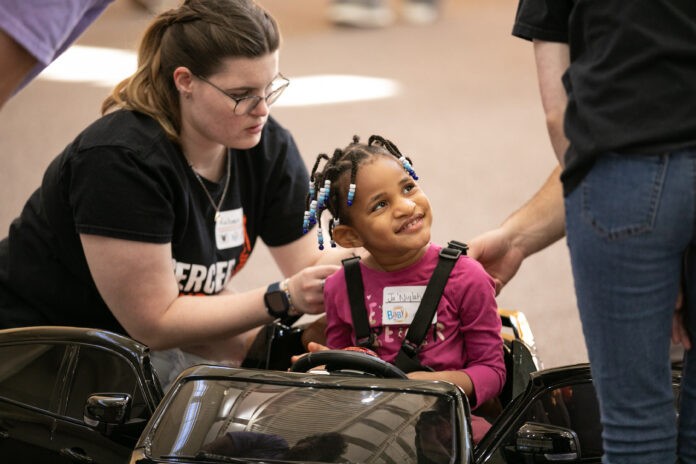Mercer University is set to host its latest Go Baby Go build event on February 15th, continuing its commitment to transforming ordinary toy cars into tools of mobility for children with limited movement. This initiative, a collaborative effort between the Engineering Honors Program and the Tift School of Education, exemplifies How To Insert Program Into A Toy Car, not in a literal software sense, but by embedding a program of compassion, engineering ingenuity, and community impact directly into these playthings. The event, taking place on the University Center Intramural Court No. 3 from 11 a.m. to 2 p.m., will see battery-powered toy cars adapted to meet the unique needs of children facing mobility challenges.
Go Baby Go, a national outreach program with roots at the University of Delaware since 2012, is built on the powerful idea of integrating assistive technology with community support. By bringing together families, healthcare professionals, and industry partners, Go Baby Go provides children with disabilities vital opportunities for movement, social interaction, and exploration. Mercer University has been an active participant in this movement since December 2016, having already delivered mobility solutions to 182 children. For this upcoming event, Mercer’s freshman and senior Engineering Honors students will dedicate their skills to customizing cars for approximately 10 families, ensuring each vehicle is perfectly tailored to the child it will serve.
 Child happily driving a modified toy car with adult supervision at a Go Baby Go event, showcasing assistive technology in action.
Child happily driving a modified toy car with adult supervision at a Go Baby Go event, showcasing assistive technology in action.
Key figures driving this initiative at Mercer include Dr. Philip McCreanor, professor of engineering and director of the Engineering Honors Program, Professor Michael Marcoux from industrial engineering, and Dr. Sybil Keesbury Martin, professor of teacher education and director of The Holistic Child Program from the Tift College of Education. Hutchinson Automotive Group’s sponsorship since fall 2023 further underscores the community-wide support for Go Baby Go. Dr. Martin highlights the valuable experience for education students, noting, “Go Baby Go provides Mercer education students the ability to participate in the builds by helping with childcare, meeting the families, seeing children and families up close and personal and interacting with them.” This direct engagement allows future educators to apply their classroom learning in real-world scenarios, fostering relationships and understanding of child development in diverse contexts.
Dr. Marcoux emphasizes the broader impact on students, stating, “Go Baby Go not only brings the campus together to collaborate on a truly beautiful service project but additionally provides students with hands-on experience and the opportunity to use their skills to make a difference.” He believes the event cultivates a foundation of service in students’ professional paths, alongside its immediate positive effects on participating families. The collaborative nature of Go Baby Go is also a key benefit within the university. Dr. McCreanor points out that “These events foster connections among the lower- and upperclassmen in the Engineering Honors Program, education students and technical communication students, as well as faculty and staff.” He further adds that the build events have become a cornerstone of the Engineering Honors Program, reinforcing basic electronics concepts through practical application and promoting a service-oriented ethos within the School of Engineering and the wider Mercer University community. Volunteer support from Mercer student-athletes further enriches the event, creating a unified campus effort to support these children and families.
In conclusion, the Go Baby Go program at Mercer University effectively demonstrates how to insert program into a toy car, not through lines of code, but through the power of collaborative action and engineering innovation. By modifying these cars, Mercer is not just providing vehicles; they are offering increased mobility, social opportunities, and joy to children, while simultaneously instilling valuable lessons of service and community engagement in their students.